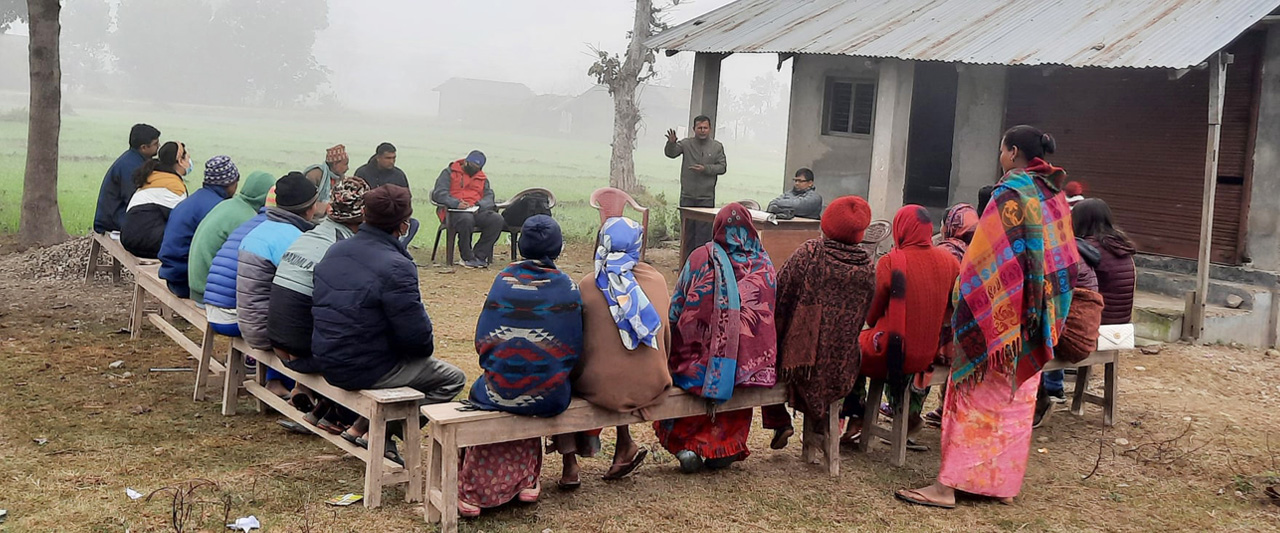How is climate change affecting the sexual and reproductive health and rights of women and girls in Nepal? And what can be done to ensure they have leadership roles as climate change response plans are developed in local communities?
In partnership with Forum for Awareness and Youth Activity (FAYA) Nepal, Ipas Nepal is conducting a project to explore these issues that is built around the framework of women-led climate justice, which calls for putting women and girls at the center of climate change initiatives because they are impacted the most.
“Climate change, gender equality, and sexual and reproductive health and rights are inextricably linked,” says Jagadishwor Ghimire, acting director for Ipas Nepal. “In the midst of a climate disaster, women and girls need a way to safely access reproductive health care, including abortion and contraception. But in societies like Nepal, where gender inequality is deeply entrenched, access to those services can be challenging or even nonexistent.”
Climate change poses “a serious risk” to Nepal’s economy and society, according to a vulnerability and risk assessment carried out by the government of Nepal. It says cultural norms and social inequalities put women, girls and Indigenous peoples at a particular disadvantage during extreme climate events.
In January 2022, staff from Ipas Nepal and FAYA Nepal visited the Kailali district in Sudurpaschi Province, focusing on 800 households in the rural villages of Sayal and Jagati, and the Dhurjana and Shanitakatan wards in the city of Dhangadhi. During these visits, they conducted “community mapping” exercises, where community members identified sites that would be of importance in times of climate change events, such as health facilities, sources of drinking water and the location of ward offices and other government buildings.

Community members engaged in participatory community mapping at Dhurjanna settlement of Dhangadhi Sub-Metropolitan City of Kailali district.
They also talked with women and other community members about how climate change is affecting access to health care—including access to abortion and contraception—and how gender and social norms affect the ability to access these services.
Shikha Basnet, gender and social norms coordinator for Ipas Nepal, says difficulty accessing health care facilities was a major issue raised by women during these meetings. They also voiced concern about an increase in gender-based violence related to extreme weather events. “When nearby water sources dry up or their crops are destroyed by heavy rains, women are forced to go into the jungles to fetch water, which puts them at higher risk of gender-based violence,” says Basnet.
All of this points to the need to have women and girls in leadership roles as local response plans to climate change are being developed. Basnet says Ipas Nepal is continuing to gather data on the impact of climate change and will continue working to make sure that communities have an understanding of how climate change, gender equality and sexual and reproductive rights intersect.


